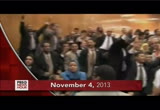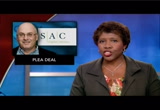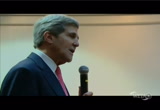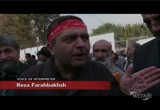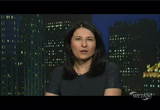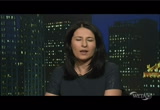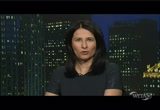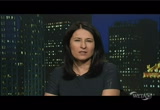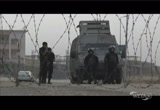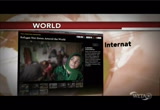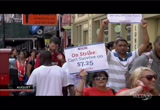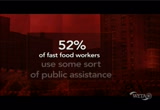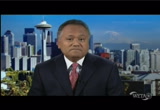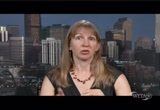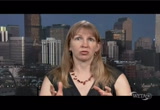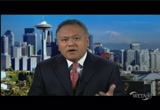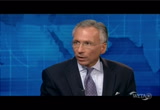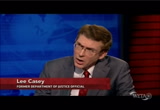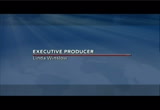tv PBS News Hour PBS November 4, 2013 7:00pm-8:00pm EST
7:00 pm
captioning sponsored by macneil/lehrer productions >> ifill: federal prosecutors cracked down on a major hedge fund today, securing a guilty plea on insider trading charges and a total penalty of $1.8 billion. good evening, i'm gwen ifill. judy woodruff is off. also ahead this monday, egypt's ousted president mohamed morsi appeared in court, charged with inciting murder and violence, but defiantly insisted he is still the country's legitimate leader. and hari sreenivasan tracks a new york city family trying to get by on one parent's eight- dollar-an-hour wage.
7:01 pm
>> it's easy looking, oh, yeah, with that money i'll be able to -- i won see anyone, i challenge you, do it. >> ifill: those are just some of the stories we're covering on tonight's pbs newshour. >> major funding for the pbs newshour has been provided by: >> and by the alfred p. sloan foundation. supporting science, technology, and improved economic performance and financial literacy in the 21st century. >> and with the ongoing support of these institutions and foundations. and... >> this program was made possible by the corporation for
7:02 pm
public broadcasting. and by contributions to your pbs station from viewers like you. thank you. >> ifill: billionaire investor steven cohen and his high- profile hedge fund agreed today to a record plea deal for insider trading. s.a.c capital advisors will admit to criminal fraud and pay $1.8 billion in fines and forfeitures. for federal prosecutors in new york, it's the biggest catch yet in a long-running investigation. >> sometimes institutes need to be held accountable too. no institution should rest easy in the belief that it is too big to jail. that is a moral hazard that a just society can ill afford. >> ifill: cohen was not charged with any criminal violation, but will no longer manage money for anyone but himself. we'll have more on the details of the case, right after the
7:03 pm
news summary. the deposed president of egypt, mohammed morsi, went on trial today in cairo, and quickly condemned the proceedings. he insisted he's still egypt's rightful leader, and he rejected military rule. the trial then adjourned until january. we'll hear from a reporter covering the trial later in the program. elsewhere in the middle east, secretary of state john kerry traveled to saudi arabia, in a bid to mend frayed relations with a longtime ally. they've been strained by differences over syria, egypt and iran. kerry met with saudi foreign minister prince saud al-faisal after talks with king abdullah. he said saudi arabia is the region's linchpin. >> if we can get stability and ultimately hopefully peace in i place like syria, the possibilities are endless. the saudis are very, very important to all of these things. the saudis are really the
7:04 pm
sort of senior player, if you will, within the arab world together with egypt. egypt is in more of a transition. so saudi arabia's role is that much more important. >> that assad must step down that iran cannot be allowed to obtain a nuclear weapon. protestors in iran staged one of the largest anti-american rallies in years. it marks the anniversary of the 1979 takeover of the u.s. embassy in tehran. tens of thousands of demonstrators packed the streets in a show of opposition to president rouhani recent open to the u.s. they stomped on the american flag and carried anti-american signs. >> thank god, the rally is more spirited than last year. some people said let's not chant death to america this year. it's not good for us. but the leader has said that it is a good thing for us to chant death to america. the world must see this.
7:05 pm
>> meanwhile talks over iran's nuclear program are set to resume thursday in geneva. the world bank is out with a study that finds cleaner cooking stoves could save a million lives a year, and slow global warming. the agency says many of the deaths are people in developing countries who cook indoors with wood or coal and breathe in smoke. it says the solution lies in stoves that burn less fuel-- or cleaner fuel-- and cost just a few dollars each. a federal trial began in milwaukee today on wisconsin's voter i.d. law. it's the latest flashpoint in a nationwide battle over such measures. the wisconsin law requires a driver's license or other photo i.d. to vote. republicans say it targets fraud. democrats argue the law discriminates because the poor and minorities are less likely to have such i.d.s. wall street opened the week with a relatively calm day. the dow jones industrial average gained 23 points to close at 15,639.
7:06 pm
the nasdaq rose 14 points. to still ahead on the newshour, the largest penalty ever for insider trading on wall street. egypt's ousted president morsi's defiant day in court. what it's like to support a family of seven on $8 an hour. taxing marijuana in colorado and other initiatives on the ballot tomorrow. >> plus a trov of 1500 paintings looted by the nazis found in a munich apartment. >> ifill: today's insider trading plea by the hedge fund, s.a.c. capital advisers, was notable not just for its financial penalty but also for the prosecutors' pursuit of criminal charges against the firm. jeffrey brown takes a deeper look at the violations in question and what the case may suggest about the government's broader investigations into wall street practices.
7:07 pm
>> brown: steven cohen is not just any trader. he was one of the street's best known traders. and his firm was one of the more successful, with a record of >> sheila kolhatkar national correspondent from business week has been connick elling b the case if he press conference today. i want to pick up on this notion of the success in pursuit of the wall street firm on criminal charges that has been a rare thing, right? >> generally the government has been reluctant to charge companies with criminal wrongdoing because it can lead to enormous job losses. now they did in this case because they have been investigating this firm for going on seven years now, they were quite convinced, apparently, that both steve cohen and those work for him were engaging in some kind of wong going-- doing. but they were unable to do a criminal case against c mr. cohen himself. they did not have the evidence they needed to make that case. so back in july they indicted the firm. and suggested that the
7:08 pm
entire firm was fostering a culture of securities fraud. >> a culture of securities fraud so remind us, it is insider trading so the charge that they agreed to is what, that this was going on. he still says he has nothing to do with it? >> right, well he and his company have maintained that they behaved properly throughout this process but back in july the government indicted the company, said that basically a large number of employees of sac capital had been trading on material nonpublic information that is information that has the ability to move stock prices. but is not known by the broader public. the government also alleged that cohen had been hiring people specifically because they had relationships with people at publicly-traded companies, relationships they could potentially mine for tips that they could trade off of. and also suggested that he was incentivizing people, paying bounces to people for bringing this kind of information into the firm and passing it up the food
7:09 pm
chain to him so he could trade on it as well. >> and tell us a little bit more about him. because he is a big player. he famously lives large, buying art, buying all kinds of things. he's going to come out of this not going to jail and still with a lot of money, right? >> well, that's one of the interesting things about this, it is a very, very historic, sort of enormous settlement. yet no one is actually going to jail. steve cohen has the net worth of around $9 billion. but even after paying a 1.8 billion to the government which is what he agreed to today, he will still have $7 billion left. so yes, he can still go out and buy a hundred million dollar paintings. he will still live in a $35,000 square foot mansion. will still do basically whatever he likes. and the fact is that the government was not able to find the evidence to sort of bring them over the line to charge him criminally himself. >> we heard that line from barajas, u.s. attorney no
7:10 pm
institution should rest easy in the belief that it is too big to jail. is there a-- was that read as a larger signal to the wall street world today? >> well, the government is clearly trying to set an example here and create an atmosphere that will deter illegal trading activit activity-- activity on wall street. back in 2060 when the string of insider trading cases started to get going the government prosecutors thought that this was rampant on wall street. and in fact it's true. back then wall street traders did not feel scared of prosecution, they thought the securities and exchanges commission their main regulator was essentially a joke. they did not take any of it certificate losely. now after today it is likely that people will be paying much more attention and it will be taken more seriously and file. >> and this case, of course, has been, was part of a much larger insider trading effort by the government against a number of firms. >> right, well in 2006 as
7:11 pm
they discussed at the press conference, they started getting alot of reports from informants and different sources on wall street that illegal trading was rampant it was very common. and since then we have seen a number of historic, very significant insider trading prosecutions, for example, there was the charge against ratman who ran the gallium group who is serving an 11 year sentence. go upthat, former head of mckenzie was convicted. they quoted the number, 75 guilty pleas or conviction, so this is a large number and it's growing. >> and finally let me ask you, we're talking about this criminal case against the firm but there is more to come, right. civil charges against steven cohen and more against the firm, so what's next? >> well, they want out of their way today to say that this settlement charges againstl the company does not create any sort of immunity for cohen himself or any individual.
7:12 pm
the u.s.nk attorney, he might havet mentioned that fourel different times during a 40ey minute press conference. so they are still looking into him. there is also a civil caseci with the sec which also could carry a significant bite. the sec is o bar stephen cohen from the securities industry for life. this is almost a harshest penalty the sec can dish out to anyone. that has yet to be resolved. that is likely to be a major blow for someone who thought of himself and was widely seen as the greatest trade never his generation. >> sheelah kolhatkar of business week, thanks very much. >> egypt's first democratically elected president now on trial for >> ifill: egypt's first democratically elected president, now on trial for inciting murder was defiant during his brief first day in court. newshour correspondent kwame holman begins our coverage.
7:13 pm
with mohammed morsi arrival for his trial shown on state television marks the first time he has been seen publicly since the military forced him from power in july. the troil is being held at this highly fortified police academy compound. broadcaster kos not air statements from inside the courtroom but one of morsi's lauers said he took a defiant stand. >> when he came into the hall the lawyers began chanting in support of him. the president said when he came in its 32-year-old morsies with kept in a courtroom holding cell along with 14 codefendants, top members of his muslim brotherhood. they're accused of insighting this violence in cairo last december against opponents of the muslim brotherhood. ten people died in the clashes. morsi supporters say the case is trumped up. hundreds of them rallied
7:14 pm
outside the trial site today. >> of course this is a sham trial. they tricked people and told them it is a real trial. we want a public trial so we can know the truth. >> reporter: riot police later fired tear gas to disperse the crowds. the trial opened a day after secretary of state john kerry was in cairo. the u.s. has suspended some aid to egypt over morsi's ouster but kerry sounded conciliatory. >> we want to help, we're prepared to do so. and the way it will unfold is the democracy is rekindled in its strength. and as the people of egypt make their choices in the future. i'm confident the united states of america will be able to stand with you and do even more. >> the morsi trial now has adjourned until january 8th to give lawyers time to review documents. the deposed president could face the death penalty if he's convicted. >> nancyiousev is covering the trial for mcclatchy
7:15 pm
newspapers. i spoke with her a short time ago. >> so nancy noussef apparently mohammed morsi-- said everything including what uniform we wear to court today. what happened in that courtroom? >> it was actually quite dramatic. it was a lot of yelling by mohammed morsi and the six other defendants in the case with them. every time the judge tried to proceed with the case they would yell that the courtroom and the trial was a as far as. mohammed morsi repeatedly said that he was a president and called the process invalid. when he walked in, one of the journalists yelled execution, god willing to him and there was even fights that broke out between the journalist and some of the morsi lawyers and those of his codefendants. and so there was so much chaos and drama that at the end of the day the judge determined that the case couldn't proceed. and it was adjourned until
7:16 pm
january 8th. >> was the point of mohammed morsi's protest to say that they didn't even have the right to be trying him because he still is the legitimate president? >> that's right. he really, we hadn't seen mohammed morsi since july 2nd the day before he was ousted by the military. and he really picked off exactly where he left off in that speech saying that he was the president. his lawyer said that if they wanted to remove the president that there was a constitutional process to do that, suggesting that the court session was, in fact, illegal. and essentially tried to carry himself as the president, even as codefendants tried to treat him still as president. the fact that he was wearing a suit when he walked in. he smiled and gave a wave that has become popular among the islamists. and his fellow codefendants let him take the lead. and so there was an effort in that courtroom to really state and show the position of morsi and his supporters that the process is invalid and that he remains the president.
7:17 pm
>> what is the state now of the muslim brotherhood, mohammed morsi's party? >> it's interesting. what we saw in the courtroom really reflected whats had been happening outside the courtroom. the entire leadership of the very essentialized organization has been arrested and because of that, the organization has been quite fractured where the muslim brotherhood could once get hundreds of thousands of people to the street today only managed to get a few thousand. and one could really feel the an vence of that leadership as they tried to galvanize support for mohammed morsi and his first appearance in court. at the same time, one could also feel the fear that the military felt about the brotherhood and their ability to create instability in the state. the fact that this trial is not broadcast live, that journalists who were allowed in could not bring cameras or telephones. and that the only images came out later through state television. the fear that its brotherhood could rise up and cause instability was
7:18 pm
certainly felt and reflected in the military's decision to not allow people to even see morsi being held by the new government. >> ifill: so if they were unable to even get this trial started today, what is-- and put off until january, what is expected to change that will allow this to get under way? >> well, i think what's going to happen is we'll see more restrictions put on those defendants, such that they can't speak so that the judge allowed them to speak. there may be efforts to create some sort of legal process such that they're not required to speak as much. because every time they were asked to speak, to answer things like their name and the charges we put before them, they used it as an opportunity to state their political positions. so my guess is we will see more restrictions on that front. it was quite a contrast from when hosni mubarak, morsi's predecessor was in jachl he was quite quiet and cool. and so the outbursts were
7:19 pm
unusual for these, what's become relatively frequent trials of former presidents. so my guess is we'll see some adjustments in terms of their ability to speak in court or be addressed by the court in future sessions. >> ifill: nancy youssef reporting from cairo for mcclatchy newspapers, thanks so much for helping us out. >> thanks, gwef. >> we mentioned earlier that secretary of state john kerry has vitted both egypt and saudi a rain why in recent days to work on u.s. relations with both countries. newshour margaret warner joins me now for more on this latest diplomatic efforts. margaret, welcome again. it's interesting to me that john kerry would happen to be in egypt on the same day that mohammed morsi comes out of seclusion, out of jail to go on trial. coincidence? >> well, this was the day before. no, it was very much awkward timing. the timing of the trip was dictated by what he is doing on the back trip.
7:20 pm
but they weresy very aware 9 awkwardness of this timing and usually his trip was not announced. his visit was not announced. now usually that only happening when you go into a really dangerous place like iraq or afghanistan. and i'm told it reflected the sensitivity about the timing, the awareness of the sort of difficult security situation in egypt. and also the anti-american feeling. so that said, they really thought about what he would say. you saw yesterday in his press conference with the foreign minister, he said we really think egypt is on this road map to restoring civilian democracy. he was very encoveraged about that. and he said we certainly expect that the constitution will include, will insurance all egyptians quote, unquote, access to full and fair trials and trans parent ones and due process but that was as far as he went. >> ifill: there has been some awkwardness because the u6789 is has not conceded that a coup actually happened in egypt. was any of that on display or was that something they
7:21 pm
were tiptoeing around. >> whether to call it a coup or not, this military installed government was glad that the administration didn't do that. but again you saw secretary kerry walking this really fine line. because now a lot of egyptians are mad at the u.. for not endorsing the coup, what was clearly a coup. so again you saw secretary kerry basically saying you know, we applaud them being on the right track, the egyptian officials actually told me afterwards they considered it very positive because at least it showed the u.s. was now ready to move forward with this relationship despite the fact that it's not a civilian government. but for the u.s. it's a more mixed picture. and kerry had to signal that about when and if the partial aid suspension will be restored. >> ifill: speaking of awkwardness, let's move to saudi arabia where-- a long time partner of the united states in the region, where he was also a force-- forced to walk a very thin perilous
7:22 pm
line, diplomatically. >> yes. because united states which has been a long time partner of the saudies in that region, feenlly saudi arabia's unhappiness with the obama administration burst into full flower as we recall a couple of weeks ago with blind quotes and attributed quote to its intelligence chief voicing such displeasure over the u.s. what they see as president obama's flip-flop on whether or not to strike syria over chemical weapons, for one. and two, it's now very vigorous pursuit of negotiations with iran. so for saudi t is really all about the big struggle for power in the region between itself and iran. and there's definitely a doubt about the steadfastness of the u.s.. >> ifill: so is it real anger or diplomatic anger? >> that's much debated. there is real anger on the issues and you heard that from the foreign minister today, who really ticked them off. and he said at one point there are ticking time bombs that cannot just be managed and managed endlessly.
7:23 pm
about syria and iran. but i'm reliably told that the sawed saudies despite the threats in the earlier stories, they don't plan to try to totally go-it-alone in funding and giving arms to rebels in syriament because they think only the u.s. actually has both the intelligence capability to vet, they don't want jihadis getting ahold of the weapons any more than washington is. >> ifill: and iran is the backdrop of this. >> and iran siding with assad is the backdrop to this siding on every other issue in which the saudis are currently disappointed with the united states. so i think we expect the saudies to press the u.s., not to give away the store to iran, not to lift sanctions too soon, and to do more to help the moderate rebels in syria. >> ifill: margaret warner, thanks so much. >> ifill: high unemployment has been one of the nation's most vexing problems since the
7:24 pm
recession. but increasingly, there are also mounting concerns about what constitutes a good job and a fair wage in an era of rising inequality. it's a story that won't go away. tonight, hari sreenivasan reports on a fast food worker trying to make a living in new york city. 25-year-old worked at the kentucky fried chicken in new york for two years, a full-time shift supervisor helping manage other workers and filling in wrefer she's needed from being a cashier to rung the freyer. >> dow get benefits. >> no, no vacation, no benefits, no sick days, no personal days. that's luxury. that's unheard of now. >> an all this for how much an hour. >> i currently get paid $8 an hour. >> after taxes that wage translates into about $270 a week in take-home pay and with that she is supporting a household of 7. >> 7 people in your house.
7:25 pm
>> 7 people in my household. my mom, my brother, my husband an my three kids. i'm the breadwinner currently in my home. my husband recently got laid off. so you know, we have to foot the bill and i have to hold my head up high and move on. >> reporter: over the past several months activists and some fast food workers including shannita have been organizing for higher wages. they point out that like shannita almost 40% of all fast food workers are 25 or older. and more than 25% are raising children. it's not just teenagers flipping burgers part-time. but the industry argues that only 5% of restaurant workers actually earn minimum wage. $7.25 in most states. in new york and around the country there have been day-long strikes to push for a $15 an hour wage for fast food workers. >> if you recognize that the fastest growing industries in this city are fast food
7:26 pm
workers, fast-food restaurants and it's a race to the bottom, make some noise! on her near minimum wage salary, shannita is one of more than $-- 10 million americans working and living below the poverty line which is around $35,000 a year for a family of 7. to better understand how people like her get by, we asked shannita to track her expenses over the course of a week to get a sense of what it's like to live paycheck to paycheck on a fast food wage. shannita gets paid on mondays and after depositing her check, $2689-- $269.88 this week she immediately takes out $100 to pay back money she ows from the woke before. she's then off to the grocery store. food takes up the biggest chunk of her budget. on this trip she spent $53.57. >> milk, mac and cheese and chicken. >> in addition to five boxes
7:27 pm
of macaroni and cheese she buys three bags of 99 cent per pound chick than she clean, skins and cooks for her family. each bag runs about $5. >> $6. >> it's one of the most expensive items on her reset, lactose free milk a necessity for her five-year-old daughter who is allergic to milk, nuts, wheat and egg. >> 104 is larger than 014. >> both kai ra and shannita older daughter 9-year-old kayla get breakfast and lurg at school which fills a big gap for shanitya. >> they get three meals a day and only how my children get three meals a day is because their school provides two meals out of those three meals. if i was to survive off three meals a day for my children we wouldn't make it we wob homeless. we would be starving. one or the other. >> while shannita is at work her husband gets kai ra and camea to and from school and takes care of sara their 8
7:28 pm
month old daughter. the family receives about $200 a month from the federally funded women, infants and children or wic program for some of sara's basic necessities like baby food. she told us years ago she used to qualify for the supplemental nutrition assistance program or food stamps but at some point lost the benefit. the week we followed her she decided to try and apply again. on one of her two days off shannita and her husband came here, a local new york city social service office to apply for food stamps. >> my day off is never actually a day off. >> she waits five hours to apply because every dollar helps. >> anything they give is definitely will stretch a long way, if i have to use coupons and stretch and do what i have to do. >> 52% of front line fast food workers rely on some sort of public assistance including food stamps, medicaid or the earned income tax credit. that's according to a new report from researcher at the u.s. berkeley labor
7:29 pm
center. in total they calculate these benefits cost taxpayers nearly $7 billion a year. it would be 30 to 45 days before shannita knows if she qualifies for food stamps. but she already depends on other public aid to get by. while she and her husband are currently without health-care coverage, her children are all on medicaid. and the family lives in a heavily subsidized four bedroom public housing apartment. shannita has to pony up only $200 a month but the we can we followed her she wasn't able to put any rent money aside. >> is it hard having 7 people under one roof. >> it's very hard. it's on a day-to-day basis sometimes you step on each other toast and you know, but as a family, we learn to unite and we learn how to struggle together because at the end of the day, this is about these three children. we don't let them experience poverty. we don't let them see mommy,
7:30 pm
can i go on my field trip. mommy, can i shall did -- you know, can we celebrate halloween. >> you said that you wanted to keep your children from witnesses poverty. but you live at a really tough neighborhood. >> yes, i do. >> the brooklyn neighborhood of brownsville where shannita and her family live has one of the highest violent crime rates in all of new york city. >> we don't do anything in this neighborhood but buy what we need and come home. if we have to go somewhere very important, we make sure everything, everything, absolutely everything is in walking distance because we can't afford transportation. >> shannita did spend $20 on public transportation the week we were with her. but she's also forced to sometimes take taxies. for example, after applying for food stamps took so much time, shannita and jude had to hop in a cab in order to not be late pick up camea and kai ra at school. but the family does a lot of walking including the almost mile and a half to and from school.
7:31 pm
shannita says the daily round trip bus fare would be too expensive. >> my kids is in one of the best schools in brooklyn. and we have to sacrifice transportation, walking 45 minutes a day to make sure they are in the best school. because we can't afford, you know, for them to be, you know, just getting by, you know n school. i got by in school. and i mean i'm in fast food. i'm in one of the quote, unquote, low-wage jobs. >> after spending $45 boy 35 on toiletries for the house and an estimated $40 on baby supplies including wipes and diapers, shannita's bank account is down to $3.26 by the time the following monday rolls around. >> is there something that people in the rest of the country are missing when they say you know what, i would be happy to take an $8 an hour job, times are tight. people would be willing to work for anything. >> i would say to them it's
7:32 pm
easy looking from outside in and saying oh, yeah, with that money i would be able to, you know, build mountains, you know. but let me see you survive. i want to see anyone i challenge you, do it. >> it's a challenge she overcomes week after week >> ifill: tomorrow, paul solman continues our look at income inequality with a story about efforts to raise the minimum wage to $15 an hour in seatac, a small city south of seattle that includes the international airport. that's one of several critical ballot initiatives facing voters as they head to the polls tomorrow. we look at two states. washington state voters are also considering a measure to require the labeling of genetically modified food. decide whether to raise state and in colorado voters will decide whether to raise state income taxes to boost education funding and also whether to tax recreational marijuana.
7:33 pm
joining us now to talk about these measures are megan verlee of colorado public radio and enrique cerna of kcts in seattle. welcome to you both. enrique cerna, let's talk about this again et ceteraically modified food initiative. this is about labeling, is that what it is? >> yes, it is. it is initiative 522. it would require the labeling of genetically modified foods on to products. what is interesting about this is that there's a lot of controversy over what is exempt and not exempt. and that's one of the things that the opponents of the initiative point out. and they say that they claim that it's a poorly written initiative. and that some items, some dairy products, some meat products, others would not be, would not apply to this. others would. so they think that this is going to add a lot of confusion.
7:34 pm
they also are against this because they feel that it is going to cost the consumer more money, whatever labeling that has to be done. would be sent down to the consumer. a lot of money also in this campaign. the opponents of initiative i-522 have spent four to one over the proponents more than 22 million dollars. it's a record here in washington state for anyone that's tried to defeat an initiative. >> ifill: can i ask who these people are. who is on which side of the issue. we talk about corporate interests against ag interests? who is taking which side? >> well, basically what you have is yes, you have corporate interests on the side that is against i-522. the grocery manufacturers association, d.c.-based food group has lead all of this. they also at one point were pushed by the state attorney general here to, he filed a lawsuit because they had not
7:35 pm
disclosed whoever their backers were. they put about $11 million into this. you are talking about monsanto, you are talking about pepsi, coca-cola, other groups that have put in large amounts of money into defeating this initiative. on the other side you have a lot of people that are, you know, for organic foods. some farmers, those types of folks. the interesting thing about all of this is that on both sides of the issue the money really has come from out of state. and so it raises a lot of questions about the whole initiative process here. and but also the fact that this is a type of initiative, you may recall that last year in california, 53 million dollars was spent there to stop an initiative that would have put labeling on genetically modified foods there. that initiative lost. >> megan in colorado, last year you legalized or voters of colorado legalized marijuana. now this year they are being asked to tax it.
7:36 pm
tell me about that? >> well, the ballot amendment that passed last year actually contained language saying that our general assembly should refer a measure to the ballot this year because all of our taxes have to be voted on to create a my enough tax level not just to regulate this industry but also to raise $40 million for school construction. that was sweatening the pot to vote for legalized marijuana so now they have decided that in order to cover the regulations and raise money for schools and to do a few other things, start a public education campaign that at the need to tax marijuana, 15% excise and 10% sales tax on top of that, so we are looking at a pretty large tax burden for the recreational marijuana industry with some local tax even being levied on top of that. right now though it looks through the language and support taxing it at this pretty high
7:37 pm
level. >> ifill: is the understanding that a sin tax, as these are called, like liquor taxes are, like cigarette taxes are, they're considering more... they're easier to pass than any other kind of levy? >> that's definitely the conventional wisdom here. colorado since voters took over the power of passing taxes has only passed one statewide tax.th and that was a tobacco tax.er so i think folks looking to tax the marijuana industryew are looking to that and. thinking, you know this is something our voters will accept. kianloaccept. >> while we're talking about taxes there is another initiative on your ballot i want to ask you about. it would raise a billion dollars for education. is that as popular as the marijuana tax? >> no. and again as you look to history, the state has not managed to pass any kind of general statewide tax increase. the thinking at this point did that probably, if it wins it going to squeak by but it has a very hard
7:38 pm
uphill climb. and interestingly all the money in that race has been in favor of the education tax. we've seen millions of dollars pouring in from national education unions, teachers unions. we've seen million dollars coming from the gates found day, a million dollars coming from michael bloomberg. big, big money pushing for this tax measure. but it's going to be a very hard sell to voters. >> ifill: and where is the money supposed to go for this, assuming that it were to pass? >> well, it's an interesting strategy this time the proponents are hoping that by laying out a lot of very concrete areas that will get funded, that voters will be more receptive than if it's just hey, lots of money for education so it's things like more money for school districts with at risk students and english language learners. more money for arts education. money to put in place a whole raft educational reforms that are general assemblies in passing but hasn't been able to fund. and money to create accountability. so web site where you could go and see how every single
7:39 pm
dollar is spent so they're hoping that by having this laundry list of things the money is going to people will feel more comfortable than using just a blank check for education. >> ifill: enrique cerna let's go back to washington state because there is another measure which actually completely comes out of what we just heard. a report in new york which paul solman will tell us more about tomorrow night, this is this idea of creating i'm sorry i'm blanking out on what it is, on the minimum. $15 minute -- minimum wage. >> $15 minimum wage. >> washington state already has the highest minimum wage of any state in the country. over $9 an hour, i believe it's $9.19 an hour this would-- this would apply to ctac which is a community-- sea tac, a community of about 12,000, right around the airport so it is outside of seattle.
7:40 pm
and it would apply to those who work at the airport, the airport workers, people that handle transportation and people that handle baggage handling and a people that handle the services out there. as well as some of the hotel workers, clerks, locally. it would boost them up to $15 an hour. many of them are just working on minimum wage it also would give them an opportunity to earn paid sick leave, something that many of them don't have. if they work $ho a week they would get at least an hour of paid sick leave so those are the main things out of this. >> ifill: this is a local initiative but this has statewide impact. >> right. >> it has statewide t definitely has statewide implications, and actually i think if also has national implications because as you know the president has been talking about bumping up the minimum wage nationally. there is also been efforts for states to bump up the minimum wage as well.
7:41 pm
so if it passes here, and the unions are looking at this very strongly. they're the ones behind this. because they, it's something that they feel that would help their union membership which has been lagging. but also this whole debate about wage equality in america today. and so that's why this small community has become in the spotlight. >> we will hear more about that from paul solman tomorrow night. enrique cerna and megan thank you both very much >> ifill: now, a new report says american doctors have cooperated in what amounted to the torture of terror suspects. the claim comes from a task force of the institute on medicine as a profession, an independent group affiliated with columbia university and the open society foundation.
7:42 pm
jeff is back with the story. >> brown: the report is unequivocal. it is as that over the last decade military and civilian physicians, nurses and psychologists violated ethical codes under orders from the military and the cia. it says they designed and participated in quote cruel, inhumane and degrading treatment to prisoners at guantanamo an other detention sites. among alleged practices, advising interrogaters be using sleep deprivation an other methods to disorient detainees, using medical information such as phobias for interrogation purposes. and force feeding of hunger striking detainees. the group says the ethical breaches took place under both the george w. bush and obama administrations. the cia and the defense department denied the findings. in an e-mail to the newshour a pentagon spokesman wrote it is the policy of the department to protect the life and health of detainees by humane and appropriate
7:43 pm
clinical needs. and in accordance with all applicable law and policy. in addition to seeking that response from the pentagon we canned an official to appear on the program but were turned down. we are joined now by dr. stephen xenakis, retired army brigadier-general and member of the task force, now in private practice and also serves as consultant to several defense teams. and lee casey say former justice department official during the regular and and first bush administration, he practiced law and writes opinion comes for the wage waj and other publicationment welcome to both of you. stephen xenakis, broadly speak the allegations in this report seem to be that the military pushed medical personnel to do certain things and that they acquiesce-- acquiesced s it broadly against both? >> it's broadly against the military, the senior leadership and in terms of the policies and practices they put in place. and it also is against the
7:44 pm
physicians, particularly the senior physicians who acquiesced to the pressure they were getting from the government bosses. >> brown: so give us an example of something, a practice that you cite there, and how it goes against medical professional ethics. >> well, one of the most important is the involvement and assignment of clinicians. that is health care professionals who take care of patients to behavieral science consultation teams. these were specifically configured teams to assist in the interrogation of the-- of these prisoners who were brought to gain tan movement that's never been part of the role and responsibility of military doctors. s this's never been in their area of work. once that's done, that really breached a particular line there. and you find them being used, in fact, they were labeled combatants and they were later labeled as safety
7:45 pm
officers. and they were not working as clinicians. so that's really important. >> let me ask lee casey for a response. >> well, i think maybe that's the answer. they were not acting as clinicians. they were acting effectively as i suppose you could say consultantses to the government to help them design interrogation strategies that would be effective with particular individuals. >> what do you see as the role of medical personnel in situations like this? >> well, i think there are two roles. first of all, obviously, the united states has a number of people in custody. that means we have an obligation to those people to take care of their health, their basic well-being, and that involves obviously medical care. in addition, of course, when you're putting together an interrogation strategy or assessing a particular individual, the assistance of psychological professionals, psychiatrists and psychologists would be invaluable and it may not
7:46 pm
have been done before. but then this is the kind of war we've never really fought before. >> well, that's-- does that fit your definition of the role of medical person snell. >> no, it doesn't. and most medical, if not all medical personnel who are clinicians aren't trained to do these kinds of assessments and trained to work with interrogations. there are very good professional groups. the fbi is excellent. they have people that that is all they do. they do that all the time. they have great experience and they know how to conduct interrogations. but you don't bring practitioners, people who treat patients into this arena, particularly since more often than not they're young doctors, just out of training. and it's not at all up to that point what they have had as part of their experience. >> walt, your answer. >> well, i think if the problem is that they are not that experiencecece then perhaps we should be looking or the military should be looking for more experienced practitioners to be part of this.
7:47 pm
but i think in terms of the overall use of medical professionals, certainly there's nothing legally problematic with that. whether there is an ethical problem for the medical profession is something obviously the medical professions is going to need to wrestle with. >> is this about the policies, is this about the medical practice or is this about the policies of the u.s. government and intelligence. >> that is how does it-- it's clearly about enhanced interrogation versus torture, the debate that we've had in this country for a number of years. >> right. so it's about the policies. and about enhanced interrogations. and the involvement of clinicians in those, the practices and we all adamantly oppose torture and abusive treatment of detainees. the practice issue also comes into play. because taking a young practitioner and then putting them in a situation where they're not acting as a doctor and then expecting
7:48 pm
them at another point to put that aside is really impractical. you know, that doctors we, in the military subscribe to a role, in fact all the professionals, all the various branches, we identify with our branch, with our professional training. and it's that that we use to do our job the best that we can and to accomplish the mission. >> and what would you have doctors do when put in these situations? >> i have them refused. it clearly violates our ethical principleses. if clearly violates the principles of do no harm. and i think that they would be supported, particularly by these kinds of doctors and other experts on this panel, that they should not be involved in this. >> can doctors refuse should they refuse. >> i think it's more complicated than that in the sense of when you say do no harm. it may well be that having a physician involved is the very thing that you need so that you do not do larm. whether a doctor can refuse
7:49 pm
or not, obviously a doctor in private practice or contractor clearly can, military doctors, of course t is more complicated. they are in the military. they, of course can refuse unlawful orders. but what is and isn't a lawful order, obviously, ask something that is often not clear, especially in areas like this where we have over the last ten years basically been learning as we go along. >> let me ask you briefly what is your answer to my broader question about how this fits into the larger debate here. >> i think this is very much about the policies. i mean i-- i certainly believe the open society is very much, has been one of the great opponents of not just enhanced interrogations but pretty of all of the interrogations that have gone on at guantanamo and guantanamo itself. but the truth is if all the physicians were removed, interrogation was not stop. the united states is at war.
7:50 pm
it has a right to interrogate. what would happen is the interrogations would be less safe for everybody. >> all right, we do have to leave it there. stephen xenakis, lee casey, thank you both very much. >> thank you >> ifill: finally tonight, a trove of some 1,500 works of modernist art found in a munich apartment. the masterpieces had been acquired by the nazis during the second world war and remained hidden for some 70 years. we have a report from cordelia lynch of independent television news. >> mat is, chaggal, the artwork allegedly looted by the nazis, they were found more than two years ago but were kept secret and we still can't see them. some experts say it's only the tip of the iceberg. >> we're talking about artworks that you can buy without any history of ownership.
7:51 pm
you can sell them without any history of ownership. people are prepared to buy, and if they are problem abtic they can get sold privately. >> the grand was found in this flat in munich, surrounded by clutter. and it was all by chance. tax officials came here to speak to cornelius gurlet, the reclusive art dealer held brandt girlet, in charge of chreblingting so-called deagain rat modern art in the run-up to the second world war, seized from jews, or removed from galleries but it appears he left some of them to his son. here at the gallery in london, there are examples of the type of pieces hitler so loathed. >> he tended to focus on the stellar artists, by casey, chaggal, mat ease but then there was a whole lower echelon of perhaps german artists who were decried as deagain rat, and for example here we have hans, an
7:52 pm
extremly successful painter. >> it reflects modernism, anti-german, anti-pat ree otic so you were cutting out a whole swathe of wonderful progressive art. >> hitler filled civic buildings with lessons of what not to like. he seized thousands of those works that didn't conform to his romantic vision of germany. many remain hidden or harbored in homes and institutions. it's claimed the lion taper by painter max beckman is one of the paintings he has already sold. >> there will no doubt now be a rush of claims on the collection. but the picture is lacking a lot of detail and galleries and museums across the world are busy trying to join up. >> unlike more contemporary art, many pieces from the 1930s and 40s are not registered. and for families fighting to reclaim the products of a
7:53 pm
lost generation is a struggle despite the deeply dubious ways they were acquired. >> we have had one or two issues over the last ten years. some of which are still unresolved, unfortunately. the further back you go the more difficult it is to find compaq provenances unbroke friend the 16th, 17th, 18th century, often you will have prev nances but with gaps in betweenment and in the past that would have been considered perfectly okay. now if there is gaps are between the mid 1930s and the late 1940s, then obviously it's cause for concern. >> every painting is a story of a family. and that's why it's so important for the family to have them back because they are part of their own history. and they reflect also the taste of the personality of the person who it belonged. and often they were ripped away, those lives were destroyed or utterly transformed so to have them back is a link with that past that was taken away.
7:54 pm
>> and who knows what other ununwritten histories still remain unseen behind closed doors. >> again its major developments of >> ifill: again, the major developments of the day. a big-name wall street hedge fund-- s.a.c. capital advisors-- agreed to plead guilty and pay a record $1.8 billion dollars for insider trading. egypt's deposed president mohammed morsi went on trial for inciting the killing of protesters. he insisted he's still the country's legitimate leader. on the newshour online right now, more on our minimum wage story. discover what the minimum livable wage is in your area, and watch paul solman's interview with the creator of the self-sufficiency standard. all that and more is on our web site, newshour.pbs.org. and that's the newshour for tonight. on tuesday, we'll look at the case of the scorned woman who tried to poison her husband's
7:55 pm
lover in a case that actually reached the supreme court. i'm gwen ifill, we'll see you online and again here tomorrow evening. for all of us here at the pbs newshour, thank you and good night. >> major funding for the pbs newshour has been provided by: moving our economy for 160 years. bnsf, the engine that connects us. >> supported by the john d. and catherine t. macarthur foundation. committed to building a more
7:56 pm
7:58 pm
7:59 pm
oh, my goodness. you're kidding me. oh, you gave me goosebumps. walberg: stay tuned for this special episode, antiques roadshow, "junk in the truck 3." captioning sponsored by subaru, liberty mutual insurance and viewers like you announcer: now, the people who make antiques roadshowopossible.ae versatility and safety drive all our vehicle designs. because however big, small, new, or old your cargo may be, it's all precious. subaru. a proud sponsor of antiques roadshow. it's not about the things we have, but the memories we make with them.
1,023 Views
1 Favorite
IN COLLECTIONS
WETA (PBS) Television Archive
Television Archive  Television Archive News Search Service
Television Archive News Search Service 
Uploaded by TV Archive on

 Live Music Archive
Live Music Archive Librivox Free Audio
Librivox Free Audio Metropolitan Museum
Metropolitan Museum Cleveland Museum of Art
Cleveland Museum of Art Internet Arcade
Internet Arcade Console Living Room
Console Living Room Books to Borrow
Books to Borrow Open Library
Open Library TV News
TV News Understanding 9/11
Understanding 9/11
